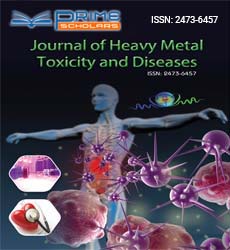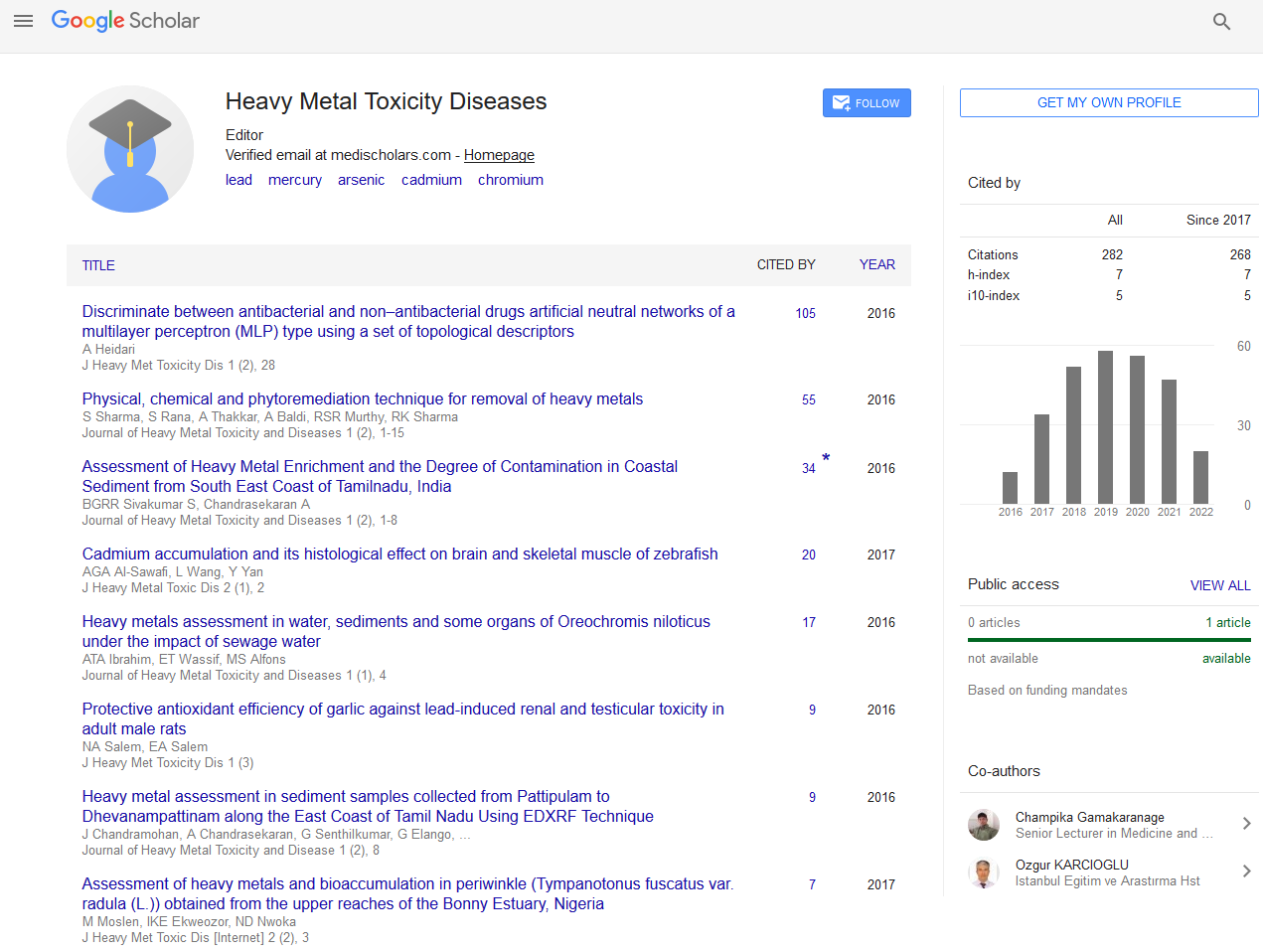Perspective - (2023) Volume 8, Issue 4
Exploring Oral Chelation Therapy: Benefits and Controversies
Maxwell Rio*
Department of Pharmacology, Mahidol University, Thailand
*Correspondence:
Maxwell Rio,
Department of Pharmacology, Mahidol University,
Thailand,
Email:
Received: 01-Aug-2023, Manuscript No. ipjhmct-23-18436;
Editor assigned: 03-Aug-2023, Pre QC No. ipjhmct-23-18436 (PQ);
Reviewed: 17-Aug-2023, QC No. ipjhmct-23-18436;
Revised: 22-Aug-2023, Manuscript No. ipjhmct-23-18436 (R);
Published:
29-Aug-2023, DOI: 10.21767/2473-6457.23.4.35
Introduction
Oral chelation therapy is a medical treatment that has gained attention
for its potential to remove heavy metals and toxins from
the body. While it has been used as an alternative treatment for
various health conditions, its efficacy and safety remain a subject
of debate within the medical community. In this article, we
will delve into the concept of oral chelation therapy, its potential
benefits, controversies, and considerations for those considering
this alternative approach.
Description
Chelation therapy, in its essence, involves the use of chelating
agents to bind and remove heavy metals and minerals from the
bloodstream. The word “chelate” is derived from the Greek word
“chele,” which means “claw.” Chelating agents essentially form
chemical bonds with metals, making them easier for the body
to excrete. While intravenous (IV) chelation therapy is the most
well-known method, oral chelation therapy has been gaining
popularity as a more accessible and less invasive option. It typically
involves the use of oral supplements containing chelating
agents like EDTA (ethylene diamine tetraacetic acid) or DMSA (dimercaptosuccinic
acid). These supplements are often taken in the
form of capsules or tablets. One of the primary purposes of oral
chelation therapy is to remove heavy metals such as lead, mercury,
cadmium, and arsenic from the body. These toxic metals can
accumulate over time through various sources like contaminated
food, water, and environmental exposure. Some proponents of
oral chelation therapy suggest that it may help improve cardiovascular
health by reducing the buildup of plaque in arteries. The
theory is that removing excess minerals like calcium can prevent
or alleviate conditions like atherosclerosis. There is some anecdotal
evidence suggesting that chelation therapy might have a
positive impact on cognitive function, particularly in individuals
with heavy metal toxicity-related cognitive impairment. Chelating
agents may possess antioxidant properties, helping to neutralize
harmful free radicals in the body, potentially reducing oxidative
stress and its associated health risks. The most significant controversy
surrounding oral chelation therapy is the lack of robust
scientific evidence to support many of its claimed benefits. While
there is some research on IV chelation therapy for specific conditions
like heavy metal poisoning, the efficacy and safety of oral
chelation therapy are still widely debated. The Chelating agents
can have side effects, and oral chelation therapy is not without
risks. These side effects may include nausea, vomiting, diarrhoea,
and electrolyte imbalances. Furthermore, the long-term consequences
of the chelating essential minerals from the body are
not well understood.
Conclusion
Oral chelation therapy is a controversial alternative medical
treatment that aims to remove heavy metals and toxins from the
body. While some people advocate for its potential benefits in
detoxification and improving certain health conditions, the scientific
community remains skeptical due to the lack of conclusive
evidence. Before considering oral chelation therapy, individuals
should consult with healthcare professionals, prioritize evidence-
based treatments, and take steps to reduce exposure to
heavy metals in their daily lives. Ultimately, the decision to pursue
chelation therapy should be made with careful consideration
of the potential risks and benefits.
Citation: Rio M (2023) Exploring Oral Chelation Therapy: Benefits and Controversies. J Heavy Met Toxicity Dis. 08:35.
Copyright: © 2023 Rio M. This is an open-access article distributed under the terms of the Creative Commons Attribution License, which permits unrestricted use, distribution, and reproduction in any medium, provided the original author and source are credited.

